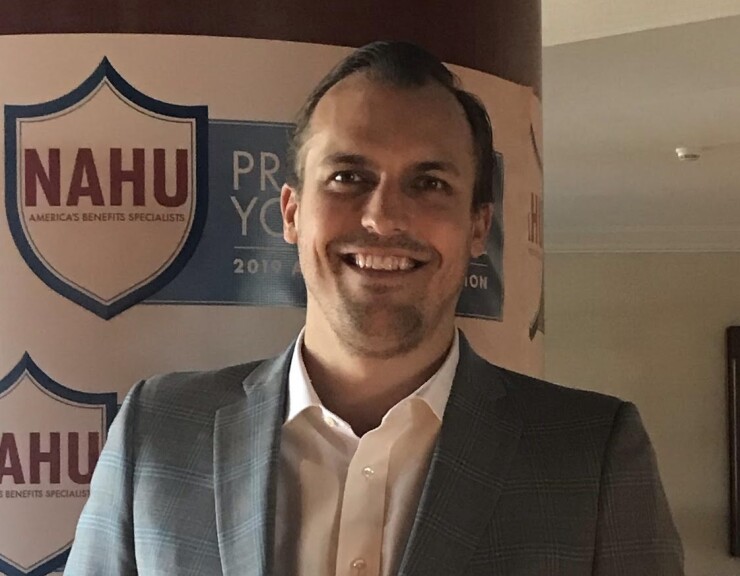SAN DIEGO — Six years ago Eric Rentsch, vice president of product development at Zywave, started Code SixFour as a way to help employee benefit brokers standardize their process of creating proposals, while also offering insurance solutions based on data-driven content.
As the Code SixFour grew Rentsch and his partners needed to consider what the best way to grow the organization would be. In October of 2018 Code SixFour was acquired by Zywave, a provider of software-as-a-service technology solutions for the insurance industry.
“We had a really ambitious product road map,” Rentsch told Employee Benefit Adviser. “The decision I was making at the time with the other owners whether we take investment money and grow down that path or sell to Zywave and grow down that path.”

Over the course of Rentsch’s decadelong career he has worked with over 200 independent benefits agencies around the U.S. He sat down with EBA during the 2019 National Association of Health Underwriters annual conference in San Diego to discuss healthcare trends in the industry.
What trends are you seeing in the healthcare space?
I was always on the broker side and the consulting side. So based on that fact and that I worked at Aflac for two years and over saw the growth of voluntary benefits and supplemental insurance, I think there’s a couple of core trends that are going on.
You’ve got what I would characterize as a very fluid insurance vehicle space. Meaning that the evolution of individual insurance, Medicare and Medicaid, small group, large group, voluntary benefits — basically the products I’m talking about the actual insurance vehicle that actually underwrites the risk — I think is very evolutionary right now, it’s shifting.
Which of those is going to be a dominant component in a decade or two has a lot to do with regulatory changes. Even if you were to say we’ll have a Republican or Remocratic administration, those changes take decades to unfold.
Coupled with that you’ve got healthcare costs going up and so there is a lot of intention to find and identify ways to better manage that. I would agree with other experts in the industry on how insurance isn’t always the best vehicle to do that.
What recent changes should benefits advisers be aware of?
One big interesting thing that did happen is the repeal of the limitations that the prior administration put on health reimbursement accounts. The repeal is going to open up a lot of opportunity. What it effectively does is it allows people to purchase individual insurance on a pre-tax basis.
During a session here at NAHU a speaker said “I don’t believe in universal healthcare,” and the audience erupted in applause. Why is there such a pushback against universal healthcare in this industry?
When people talk about Medicare for all that’s universal health insurance, not universal healthcare. The challenge with that is the proponents of that would say you’ve aggregated purchasing power. So in theory the premise is that the negotiation power of that larger block of money is better able to manage things like billion dollar drugs or aggregated healthcare systems that increase the cost of healthcare in the United States.
I think the problem with that, that maybe this group believes is that there are more contributing factors to the rising cost of healthcare. This could include demographic shifts in the U.S., unhealthy habits and also this kind of strong belief that technology innovation drives better outcomes. We believe that as a country and direct money accordingly.
Those things are much more significant factors that increase healthcare costs, which drives the cost of insurance premiums. So having a single payer doesn’t necessarily solve any of that. That’s why people don’t believe that a single payer system will control costs.





